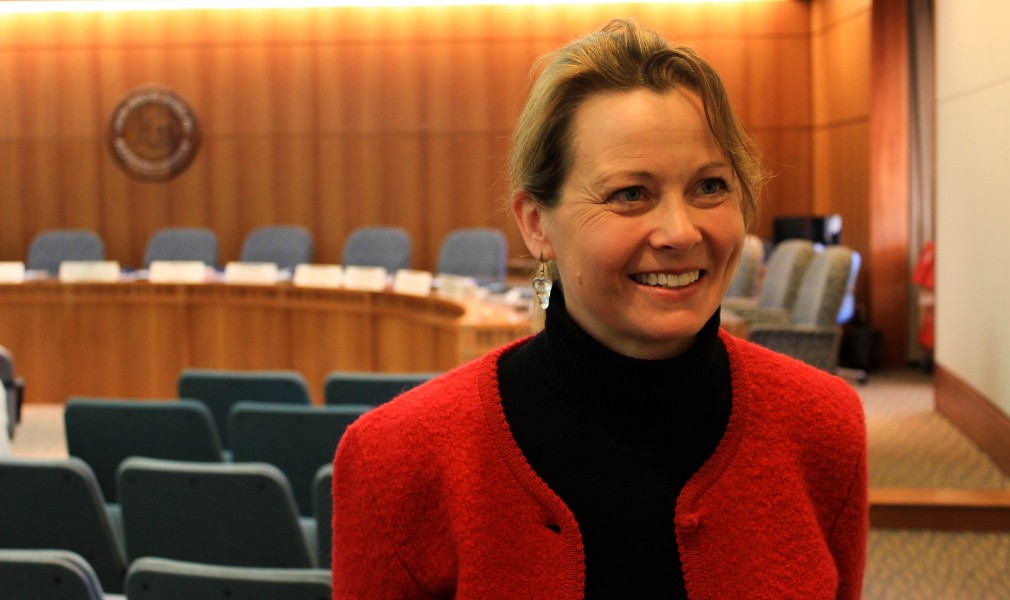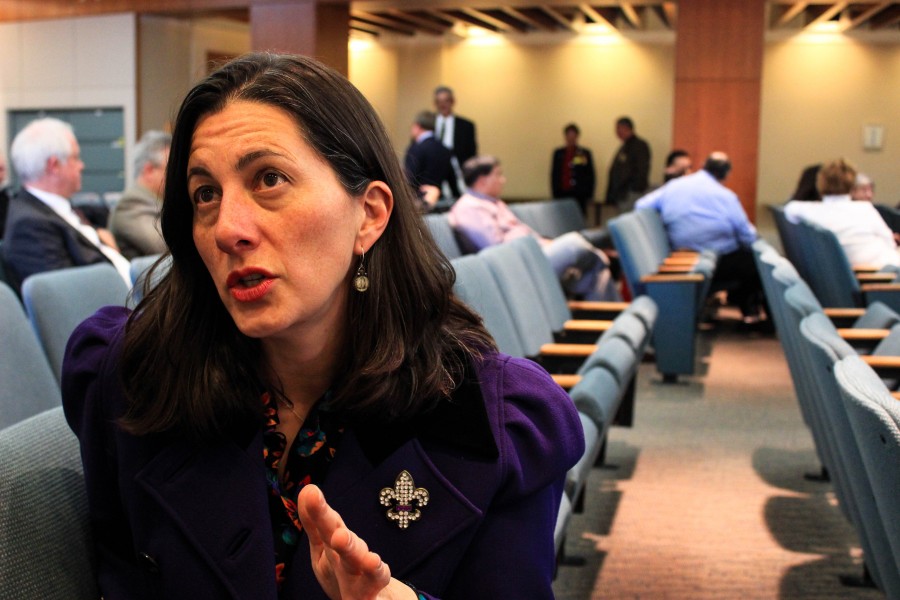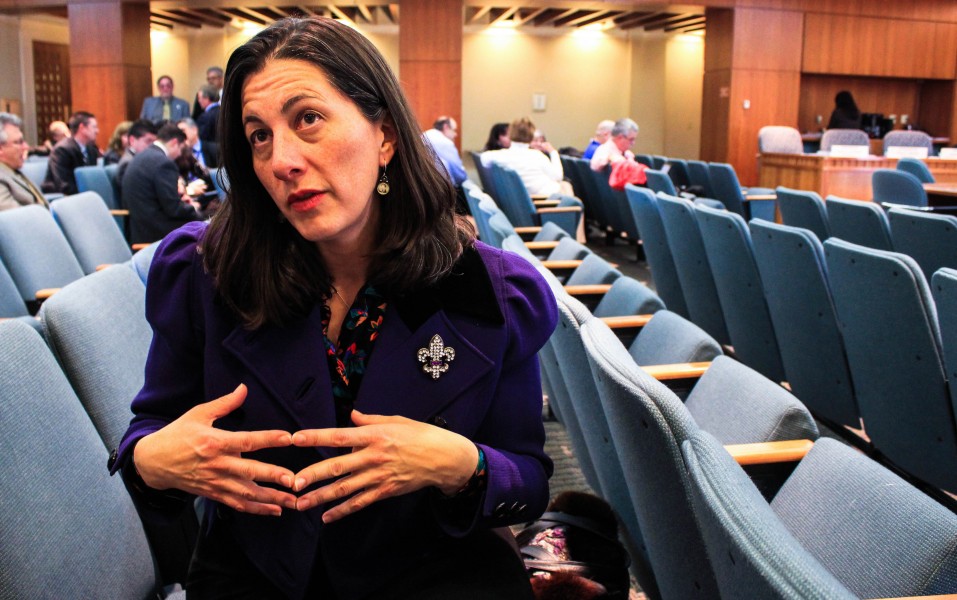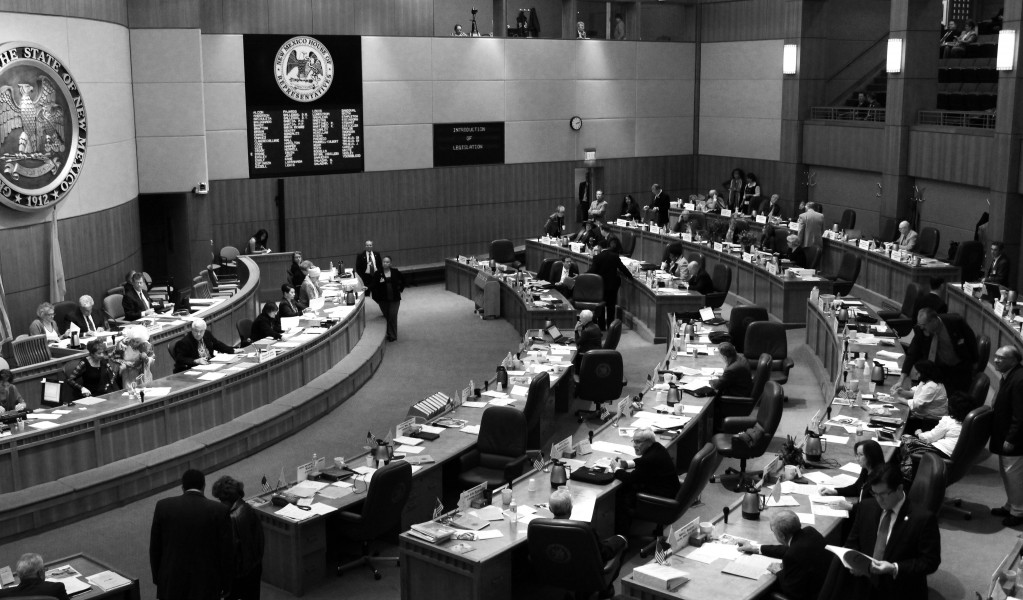Tags
Related Posts
Share This
Cirque du Santa Fe
By Brandon Ghigliotty/Photos by Sandra Schoenenstein
“Mr. Speaker gentlelady from Chavez County, do you love the lesser prairie chicken?”
The house gallery erupts in laughter. My reaction is slightly different. I’m uncomfortable with the fact that someone pleading to thwart a species’ extinction is being humiliated. I exit the chamber, shaking my head clear of the ringing laughter.
Ideas escape me and the only persistent one is shot down. My colleague convinces me it is too early to visit the bar.
I consider writing about the art of the Roundhouse, the paintings of men in cavalry coats striding across the desert, the buffalo built from recyclables (which happens to mark North in the Roundhouse) and the various other bits of furniture and sculpture that have found a home here. It would be easier to approach the pieces of art and their placards than it would be to approach the mayor while he sips his soft drink. I do neither.
My photographer arrives and we re-enter the house gallery. Her eyes light up. The lesser prairie chicken is still the topic of debate.
“Mr. Speaker, gentlelady…” The question rambles. A frocked woman is trying to ask whether helping the lesser prairie chicken’s current plight would be addressing a drought problem rather than a lesser prairie chicken problem. That perhaps intervention to mark the lesser prairie chicken as endangered is not the best answer to an issue brought on by drought conditions.
The response she receives: god is in control of our drought situation.
I am stunned. My brain is sick with the implications of this statement. If god made us, and we’re killing the lesser prairie chicken and god simultaneously is trying to snuff them out with a drought. Then god clearly has no love for the lesser prairie chicken and who the fuck are we to stop him?
I think burying my face in my hands is inappropriate action when attending a legislative session and decide to exit the gallery instead.
While gathering my photographer, another question is issued: “Mr. Speaker, gentlelady, if I were hunting the lesser prairie chicken, what sort of sound would it make?”
After nimbly dodging the question, it is restated with all the tact of a 5th grade child.
“Mr. Speaker, gentlelady, do you not know the sound a lesser prairie chicken makes?”
A woman clucks on the floor of the house to roaring applause. The bill passes.
This is my introduction to the legislative process.
Moving into the house committee room reveals groups of constituents waiting for the house session to break and fill a crescent-shaped table with their representatives. Two individuals shuffle along, setting writing utensils and notepads down as if setting the legislative dinner table.
I move to meet a group of women across the house committee room introducing myself and my colleague, Sandra Schoenenstein, to a woman in red, Heather Balas president of New Mexico First, and her friend and cohort Katherine Cordova, concerned parent and citizen lobbyist. Both are awaiting the legislators arrival in support of the same piece of legislation, a $2 million initiative toward Science, Technology, Engineering and Mathematics, or STEM, education to keep New Mexico teachers “trained and current” with modern trends.
Cordova makes the case that, “We need good education so our children can get jobs, sure, but Intel, Boeing, Lockheed – to keep these businesses (in New Mexico) they need to be able to hire right here.”
Offering my take on the issue, I inevitablyI try to keep from soapboxing about for-profit institutions holding education hostage. After giving them my opinion on the matter, Cordova and Balas tell me I would be an articulate voice on their side when the legislators arrive.
A bald-headed man sitting behind them remarks, “We like you guys. We need humanities majors to write about all the great stuff we do.”
I tell him I thought his joke would be about how the tuition of humanities majors subsidizes STEM equipment and labs in most schools. The bald-headed man’s face shifts to a smile and he offers his hand.
“You’ll do well as a journalist. You’ll need that thick skin. Good luck.”










 Jackalope Magazine is the student magazine of Santa Fe University of Art and Design. Building on the interdisciplinary nature of our education, we aim to showcase the talent of our university and character of our city.
Jackalope Magazine is the student magazine of Santa Fe University of Art and Design. Building on the interdisciplinary nature of our education, we aim to showcase the talent of our university and character of our city.